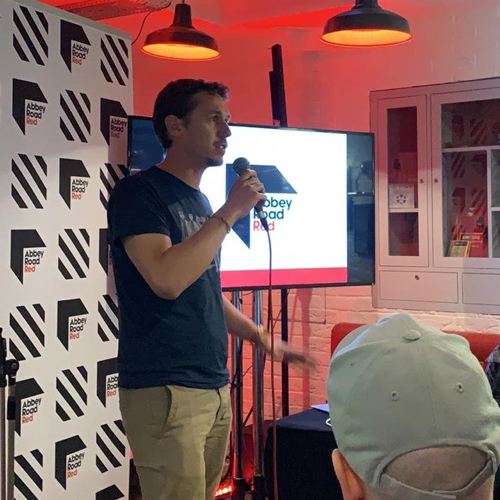Next up was Abbey Road Red’s Innovation Manager, Karim Fanous, who put the discussion in context with current trends in the music industry. Three converging trends are driving us forward into a world of everyday music experiences designed to work in harmony with, or influence, our physiological states:
1) An increased trend towards lean-back listening and activity-based music searches
2) A trend towards hyper-personalisation in our music experiences and recommendations
3) The emergence of adaptive and generative music, driven by algorithms and artificial intelligenceAll of these trends sit on top of realtime data feedback loops that enable experiences and services to tailor the music in response to listening patterns, biometric and other contextual bits of data.
Fanous highlighted two key moments in the space this year:
Moby releasing an album of sleep-related tracks via the Calm app; and Warner Music signing a distribution deal with adaptive music platform, Endel, to distribute albums to Spotify, the first five of which are sleep-themed. He also pointed to a crop of startups operating in the area, including Red’s own alumnus, adaptive music platform
LifeScore, and others including Muvik Labs, SingFit, Mubert and Studio Amplify.
Kokoon is a hardware/software platform creating headphones with EEG and motion sensors that monitor sleep and supply adaptive noise and music that evolves in-line with data feedback to help induce and maintain sleep.








